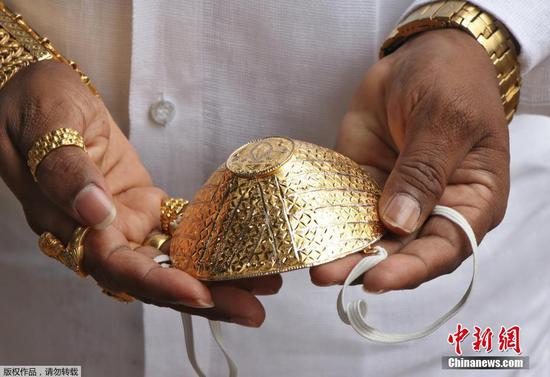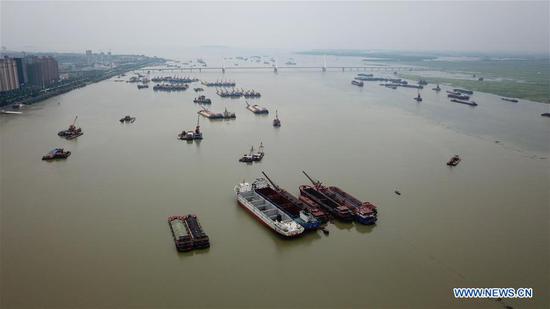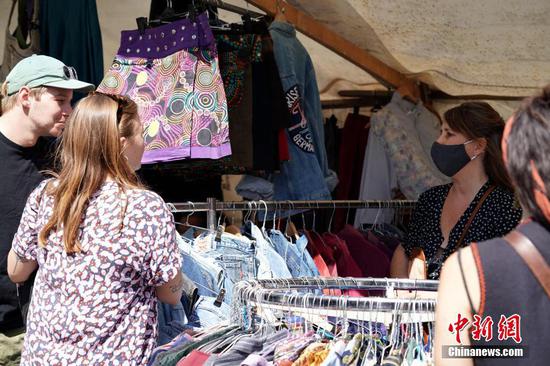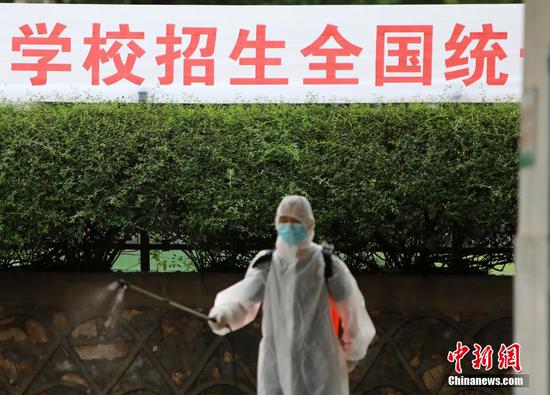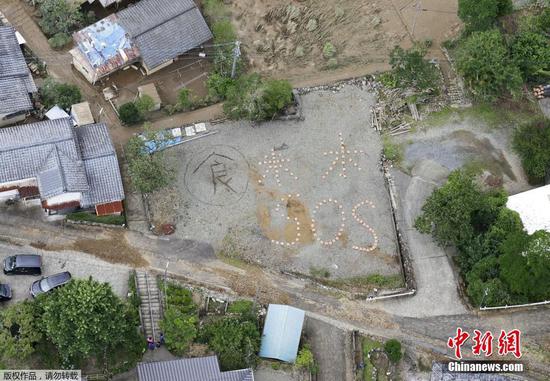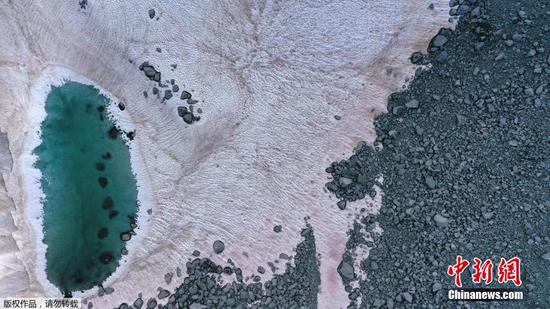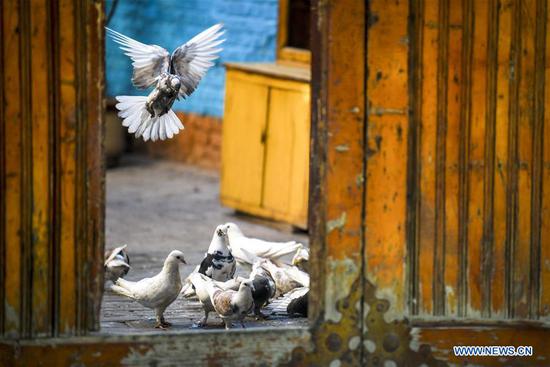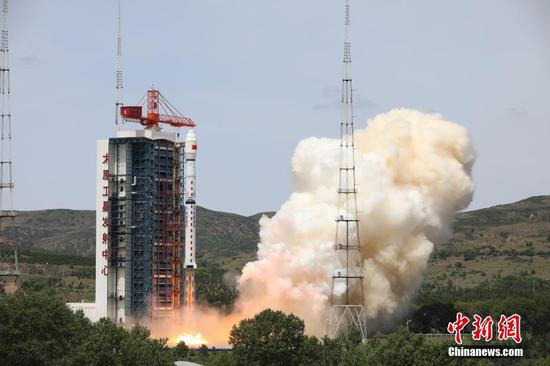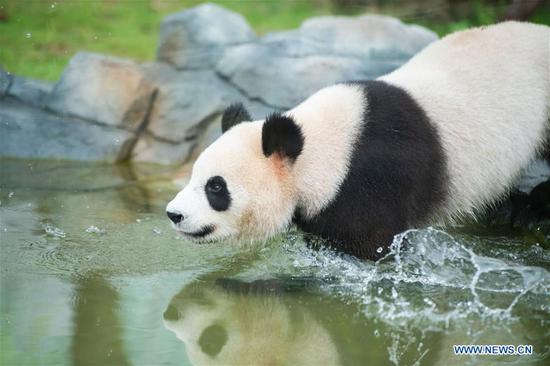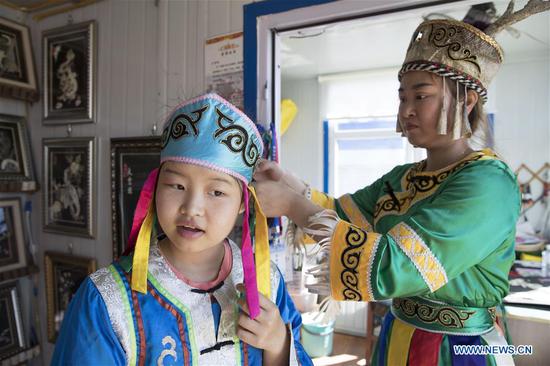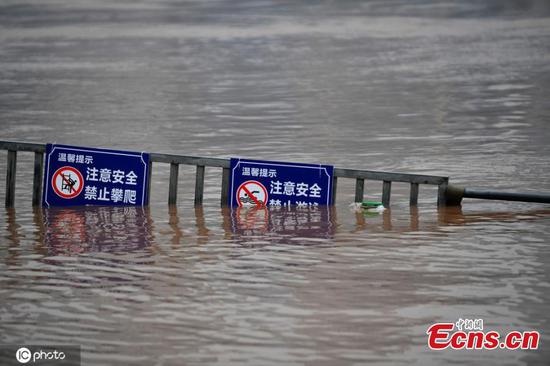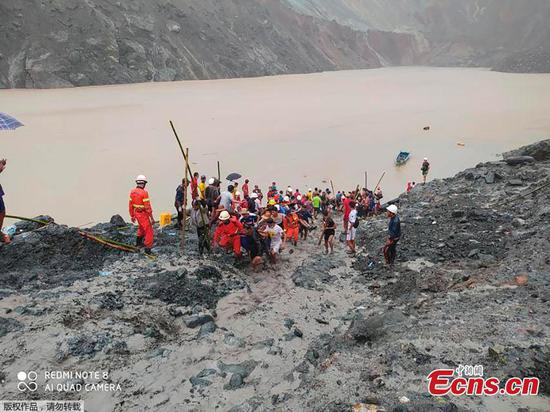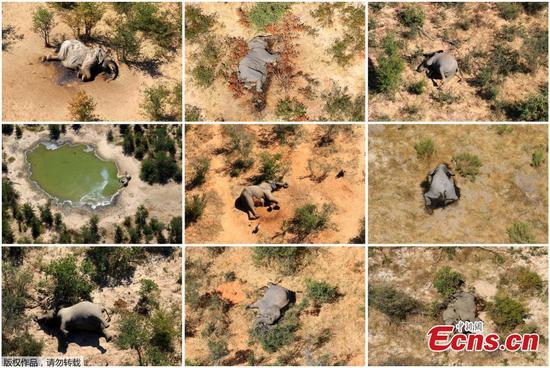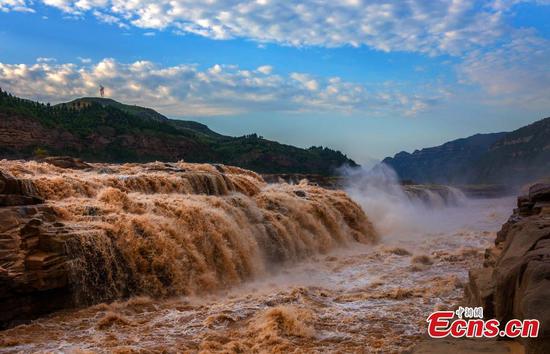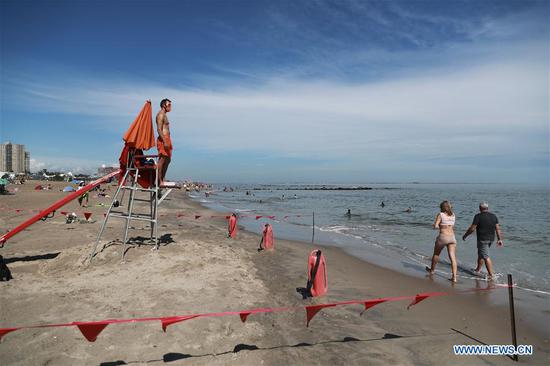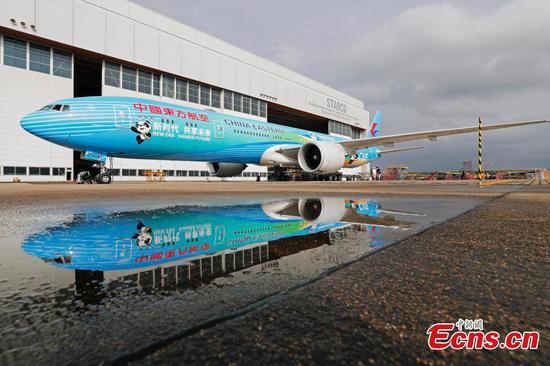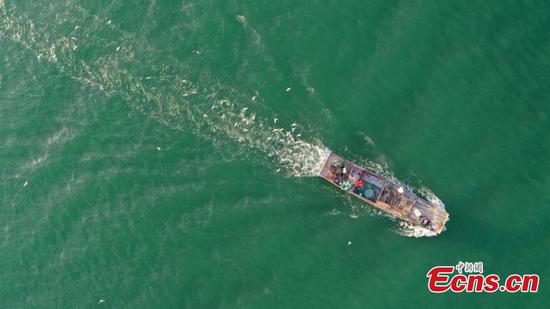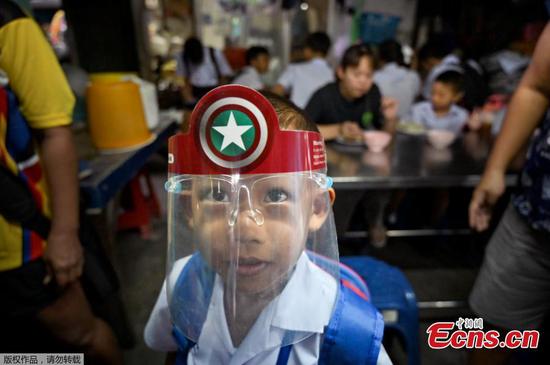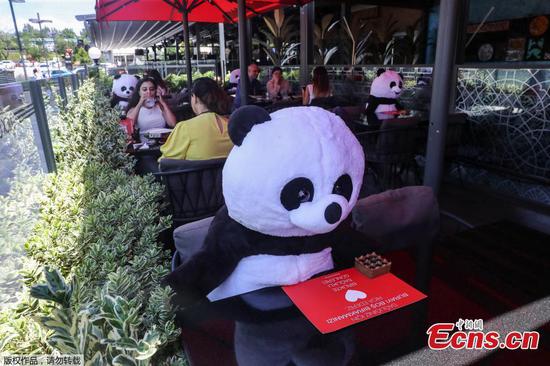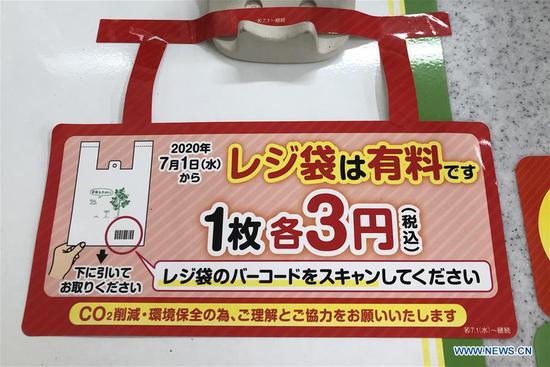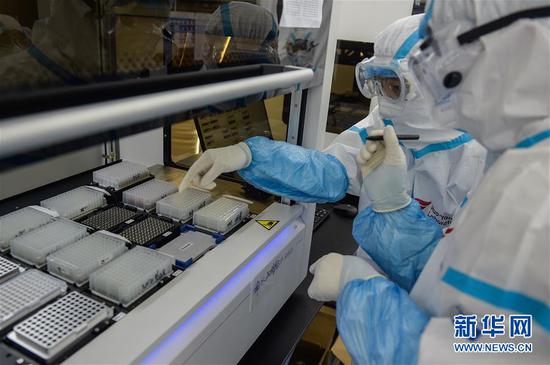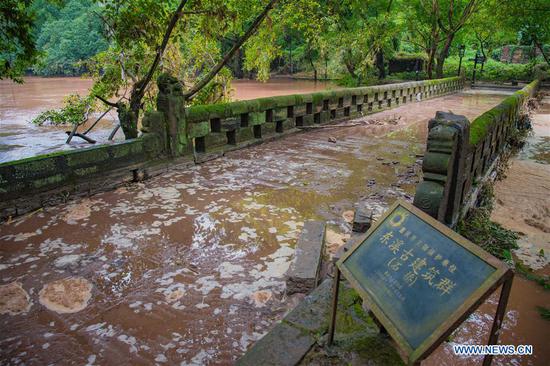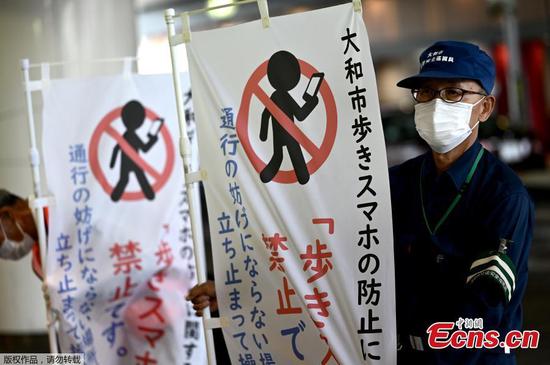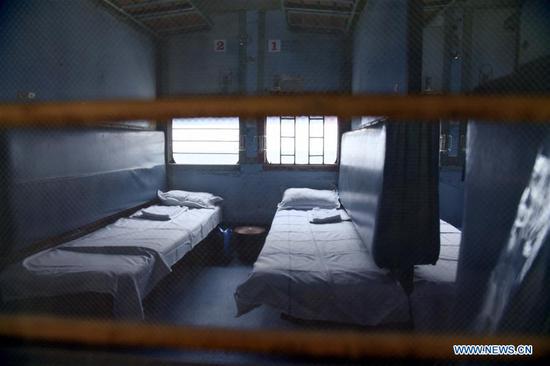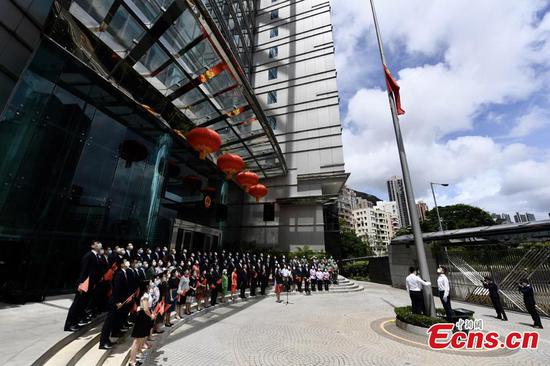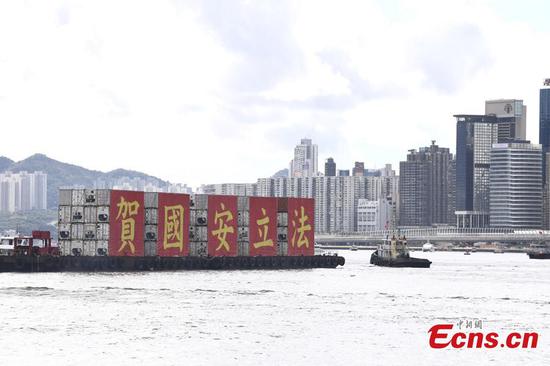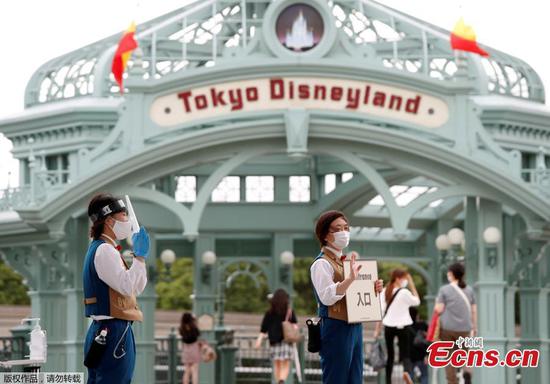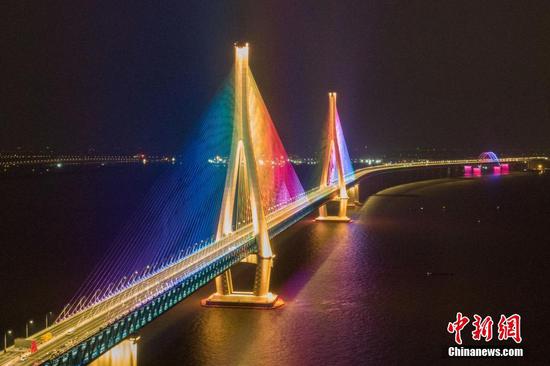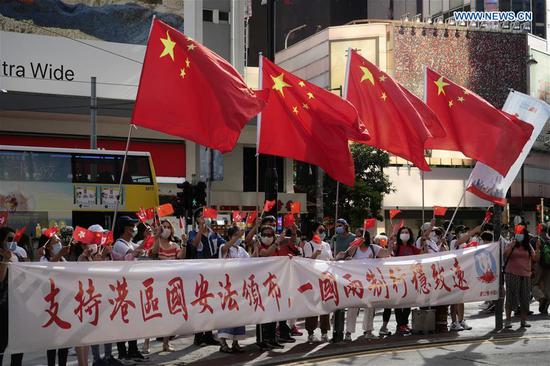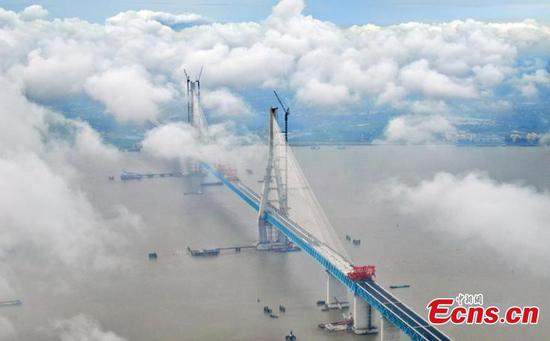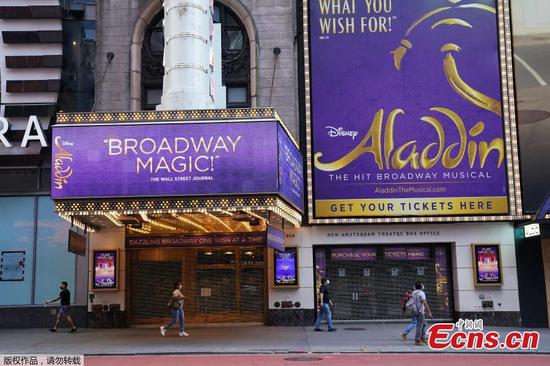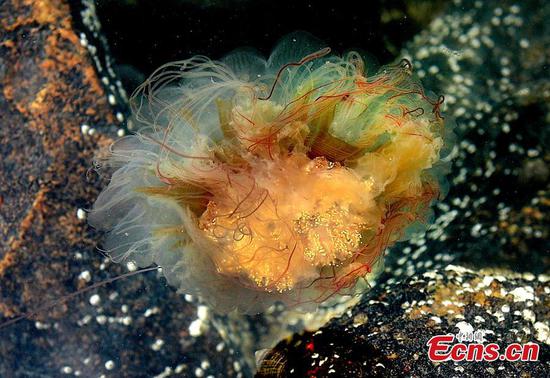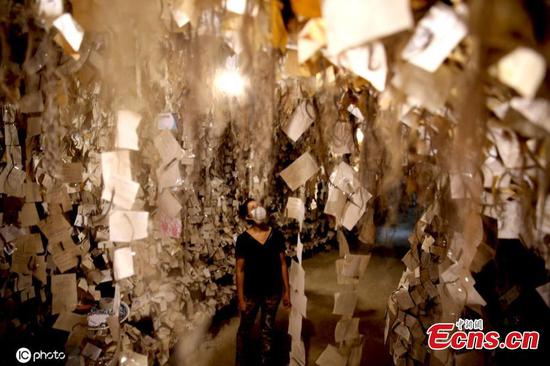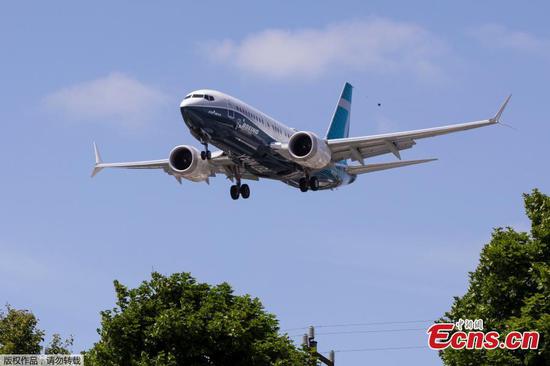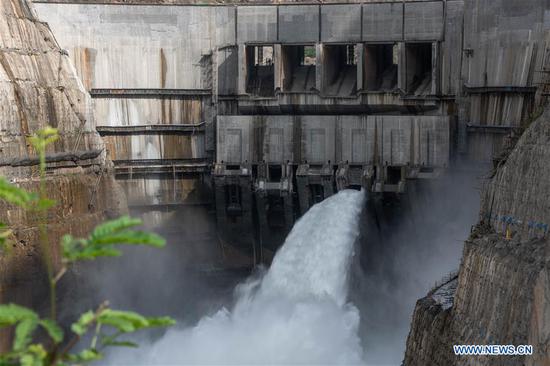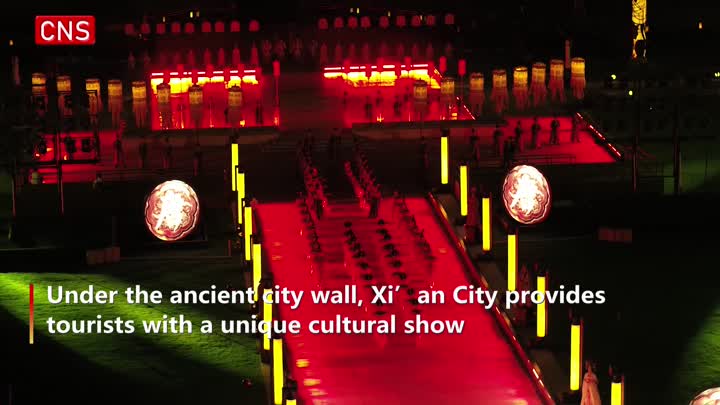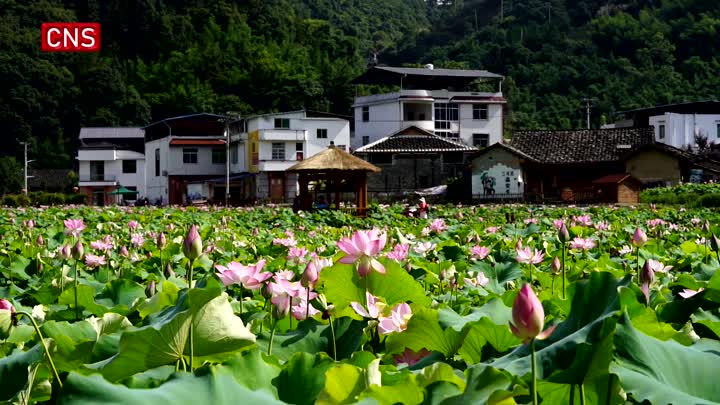
The Chinese national flags and flags of the Hong Kong SAR flutter in Hong Kong. (Photo/Xinhua)
Vincent Lee Kwan-ho, a Hong Kong deputy to the National People's Congress and a former director of Hong Kong Exchanges and Clearing, says that in contrast to the naysayers who predicted massive capital outflows after the national security law for the SAR was enacted, money is pouring into the Asian financial center.
"A handful of troublemakers scared people with their assumptions about investors' exodus, but in fact, the smart money is pouring in," Lee told China Daily in an exclusive interview on Friday.
Lee's comments reflected a 2.9 percent jump in the Hang Seng Index on the first day of trading after the new law came into effect — and Hong Kong's dollar trading near the high end of its floating rate alongside the U.S. dollar.
He rejected claims that the new law would undermine Hong Kong's position as a global financial hub, saying the city's status is secure and it will continue to stand as the gateway for global investors to carry on business with the Chinese mainland's enormous market.
"All smart businesspeople know it's hard for anyone to be very successful without some sort of linkage with the Chinese market," he said.
It was last year's social turmoil and violence on the streets of Hong Kong that posed the greatest threat, Lee said. "Imagine who'd like to invest in a place gripped by continual riots, violence, vandalism and traffic paralysis?"
In the veteran broker's view, businesspeople are clever and — equally importantly — practical. "They may move out but will come back when things are back to normal and stability returns to the city".
Lee said the law could play a substantial role in bringing peace and good order back to Hong Kong and get it back on track. The city's economy did take a couple of hard hits — first because of the riots, then by further economic devastation brought on by the COVID-19 pandemic.
The enactment of the national security law in Hong Kong is good news for business, Lee said.
"Business always seeks stability. With the law in place, and the pandemic under control, Hong Kong will thrive again", he said.
Lee rejected claims that the national security law will crush Hong Kong people's freedoms. Those freedoms remain and are still the key to the city's success as an international financial center, he said.
He cited the Heritage Foundation report naming Hong Kong as the world's freest economy for 25 consecutive years before the unrest broke out in June last year.
Violent protests, vandalism and lawlessness are the real factors stifling freedom for the city's people, Lee said, pointing out that ordinary people who expressed dissenting opinions from the protestors were attacked, and people even had to be careful about the color of clothing they wore outside for fear of being targeted.
During the city's months-long social unrest, radical protesters blocked traffic throughout the main commercial areas almost every weekend. Public facilities and privately owned shops were attacked. Businesses that were presumed — correctly or not — to have links the Chinese mainland became favored targets of the rioters.
Last November, a 57-year-old man was set on fire by anti-government rioters after he spoke out against them for vandalizing the Ma On Shan MTR station and chased after them.
Lee reiterated that the law targets only those with secessionist intentions or seditious aims to subvert State power, and acts of terrorism. The law also prohibits colluding with foreign or external influences.
Lee was among the 10 Hong Kong deputies to the NPC who saw the law passed by the NPC Standing Committee in Beijing at the end of June.
The national security law for Hong Kong remains a hot topic, and probably will be for quite awhile. But Lee predicted that three years from now nobody will be talking about it. Laws such as this are in place around the world. By then, people will have realized that the law affects only a minority intent on harming the city and its people.
He also noted that some people became fearful after Western politicians set out to demonize the law. But those politicians operate under a double standard, one for them and a different one for everybody else, he said.
"Many countries and regions around the world have similar security laws, but when Hong Kong has one, it is described as 'suppression of freedom'. It doesn't make sense".
Normal residents, foreigners, tourists — they have no need to worry that the city's national security law will affect their lives in Hong Kong, Lee said, "unless you are a terrorist or you're going to bring down the government".
Lee blasted the U.S. for using Hong Kong as a pawn in the geopolitical power game it is waging against China.
The U.S. may naively think it is helping Hong Kong people with its so-called "protecting freedom of speech" and "promoting democracy", but actually it is damaging the city, as shown by the riots that started last year, Lee said. He called the U.S. interferences "a shame".
"That's why we must put up our guard to prevent such subversive activities," he said.
Meanwhile, he characterized the U.S. sanctions against Hong Kong as an attempt to derail the city's national security legislation. Those sanctions will adversely affect American interests, especially with the world fighting the COVID-19 pandemic, which is spiraling out of control in America, Lee said.
Lee cited the U.S.'s announcement on June 29 that it would revoke Hong Kong's special trade status under U.S. law, including ending defense-linked exports and restricting the city's access to commercial-military dual use technologies.
U.S. companies in Hong Kong that do a tremendous amount of business with the Chinese mainland from the city will suffer hardship and they cannot easily leave, Lee said.
According to the U.S. Consulate General in Hong Kong and Macau, there are over 1,300 U.S. companies operating in Hong Kong, of which more than 800 are headquartered or maintain regional offices in the city.
"Whatever sanctions the U.S. attempts to impose on Hong Kong, I'm sure the moves will be met with countermoves from China," Lee said.
Lee said the U.S. would be better off taking care of its own citizens, who are suffering from the highest number of COVID-19 infections and deaths from the disease of any country or region in the world.









